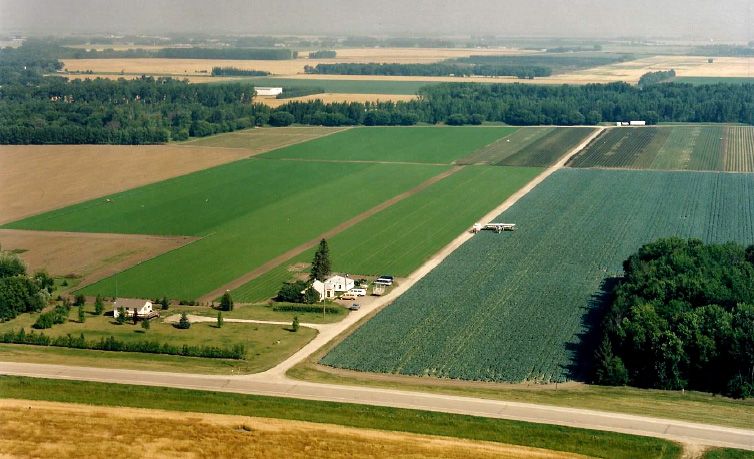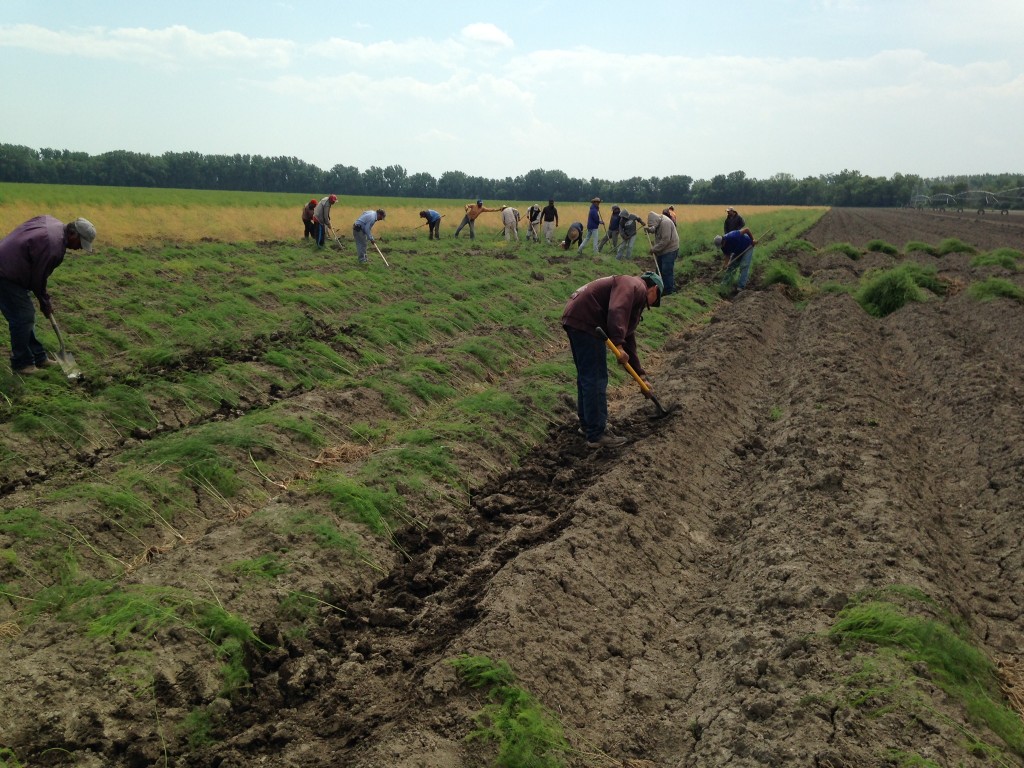At Connery’s Riverdale Farms in Manitoba, strawberries, asparagus, broccoli and a multitude of other crops line the fields, forming endless rows of lush green vegetation and contributing to the network that ensures food security in Canada. Few of these crops can be harvested mechanically. Usually workers dominate the fields, cutting each asparagus spear and broccoli head, picking each squash and strawberry.
But the COVID-19 pandemic has meant that the farm, along with farms across Canada, will likely see delays in planting and harvesting, additional costs and lower numbers of the seasonal workers that they bank on to complete work on time.
You may unsubscribe from any of our newsletters at any time.
“The great challenge is, if you don’t have the workers now, you’re really affecting the entire crop,” says Peggy Brekveld, vice-president of the Ontario Federation of Agriculture. “The labour that goes in some crops will no longer be viable if you miss critical planting dates; some crops, you’ll see a reduced yield.”
Springtime is a particularly work-intensive time in agriculture, as farms get ready for planting and some crops are prepared for early harvesting. Canadians are given preference for jobs, but gaps in the available domestic workforce mean that many farms rely on the assistance of international workers from the Seasonal Agricultural Workers Program (SAWP). According to Statistics Canada, 49,622 temporary foreign workers from Mexico and participating countries in the Caribbean filled 54,734 jobs in agricultural operations in 2018.
More COVID-19 coverage from Broadview:
How COVID-19 is affecting Vancouver’s Downtown Eastside
The challenge of making editorial decisions in a pandemic
How I’m practicing community care in isolation
Participants in SAWP will be allowed to enter Canada during the current border closure as long as they clear health screening protocols before travel and then isolate for 14 days upon arrival, according to Immigration, Refugees and Citizenship Canada. While understandably cautious, these extra measures add precious time onto start dates.
In Manitoba, harvesting begins in May and goes right through until the end of October or early November. In relatively warmer regions such as southern Ontario and in greenhouses across the country, harvest starts even earlier, meaning any sort of setback can have major consequences on production.
According to a recent poll conducted by the Ontario Federation of Agriculture, 78 percent of OFA members (including those who do and do not participate in SAWP) expected lost revenue as a result of value chain disruptions, 73 percent are anxious about their inability to conduct business as usual and 69 percent expect reduced cash flow.
To support the agricultural industry in Canada through this period, Prime Minister Justin Trudeau announced late last month that the government will support Farm Credit Canada with an extra $5 billion to lend to producers, agribusinesses and food processors. Although this increase is big, the loans may not be enough to alleviate the strain experienced by farm owners.

“The $5 billion in funds… that is not a grant, that is a loan. So, people are making that choice as well… how much debt can I support?” says Beth Connery, COO of Connery’s Riverdale Farms and chair of the Canadian Horticultural Council’s labour committee.
On top of a potentially reduced harvest, the costs of coping with COVID-19 are could be significant. As many airlines and airports are closed to international flights, booking flights from workers’ home countries to work sites — in most cases, the employer’s responsibility — may be more complicated and expensive.
Connery says that social distancing practices will also increase her farm’s costs over the summer, as the onus is on employers to ensure that evolving protocols are clearly communicated and followed and that adequate personal protective equipment is provided to workers. Keeping everyone safe from COVID-19 after they have completed their quarantine will also be a concern, including hiring local workers to deliver groceries, buying specific protective equipment and cleaning supplies, and finding ways to help everyone pass the time outside of work hours.
“We’re going to have to have social distance between all of those workers as well, I believe,” says Connery. “If they get through their first 14 days here, the only place that they can catch corona [virus] is from a Canadian.”
“The great challenge is, if you don’t have the workers now, you’re really affecting the entire crop.”
Seasonal workers have an agonizing decision to make during this time as well. International travel has been largely discouraged during this pandemic, however, workers who choose to not travel to Canada this month run the risk of not being hired later on in the summer. If they rely on these positions to financially support their families at home, how will they be able to stay safe?
“We don’t expect that we’re going to see everybody that we usually do,” says Connery. “There will be some who will be choosing to stay home because they have young families, because they have older relatives that they’re worried about.”
While preparing for the possibility of a labour shortage this summer, Connery also considers the series of small homes that Riverdale Farm supplies the seasonal workers. The homes contain two beds per room, although during the 14-day quarantine, this might not meet the required two-metre minimum distance between people. Workers will have to arrive and quarantine in waves, adding to complexity.
On other farms, where workers stay in the family home or in long bunk rooms, necessary quarantine measures will be difficult to implement. Connery also wonders how to support workers during quarantine. Isolation is difficult in the best of times, let alone in a foreign country while family back home may be affected by the virus. In a remote area where high-speed internet is a rarity, keeping everyone connected may be difficult.
“It’s always been our goal to produce healthy and safe food for Canadians. But the other high priority has always been our employees,” says Connery. “…We’re hoping that we can get on with the job, have the people that are needed to produce good, safe food for Canadians, and have it done in a timely fashion so that everyone is healthy and happy. That’s our goal.”
Broadview is an award-winning progressive Christian magazine, featuring stories about spirituality, justice and ethical living. For more of our content, subscribe to the magazine today.














